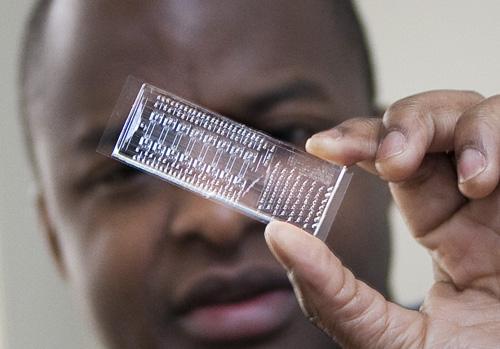Biological samples are typically a mixture of molecules, viruses, bacteria, cells, and other particles. Considerable information can be acquired from a biological sample. However, before analysis, these samples are usually required to be separate in different components. For example, sample separation is an important step required in techniques such as PCR, gel-electrophoresis, DNA sequencing, etc. Accordingly, proper sample preparation is an important technique in the biomedical and research field. One problem associated with the current technologies is the lack of a technique that can separate and concentrate small particles from complex liquid samples. This problem is commonly seen in applications of pathogen detection and medical diagnosis. The following invention uses multiple separation methods in a synergistic fashion to allow for a more effective separation.
The described invention is a miniature fluidic device for separating particles suspended within a liquid sample that is introduced into the interior volume of the device. The device uses laminar flow and a combination of gravity and acoustic, electrophoretic, dielectrophoretic, and diffusion-based processes in concert to separate the different particle types and allow them to be collected separately or passed selectively to a subsequent device. The particles may be biological in nature, such as cells, viruses, or bacteria, possibly in combination with non-biological particles.
The figure shows a representative schematic diagram of an in-line separation device that uses simultaneous diffusive, ultrasonic, and electrokinetic effects to achieve high performance separation in a single step.
- Extraction and concentration of pathogens, cells, or other particles of interest from clinical samples for medical diagnostics
- Sample purification and preparation for:
- PCR
- Gel-electrophoresis
- DNA sequencing
- Biomedical field
- Sample characterization
- Environmental analysis
LLNL has obtained a patent (US Patent 9,480,935) covering this technology (LLNL Internal Case # IL-11594)


